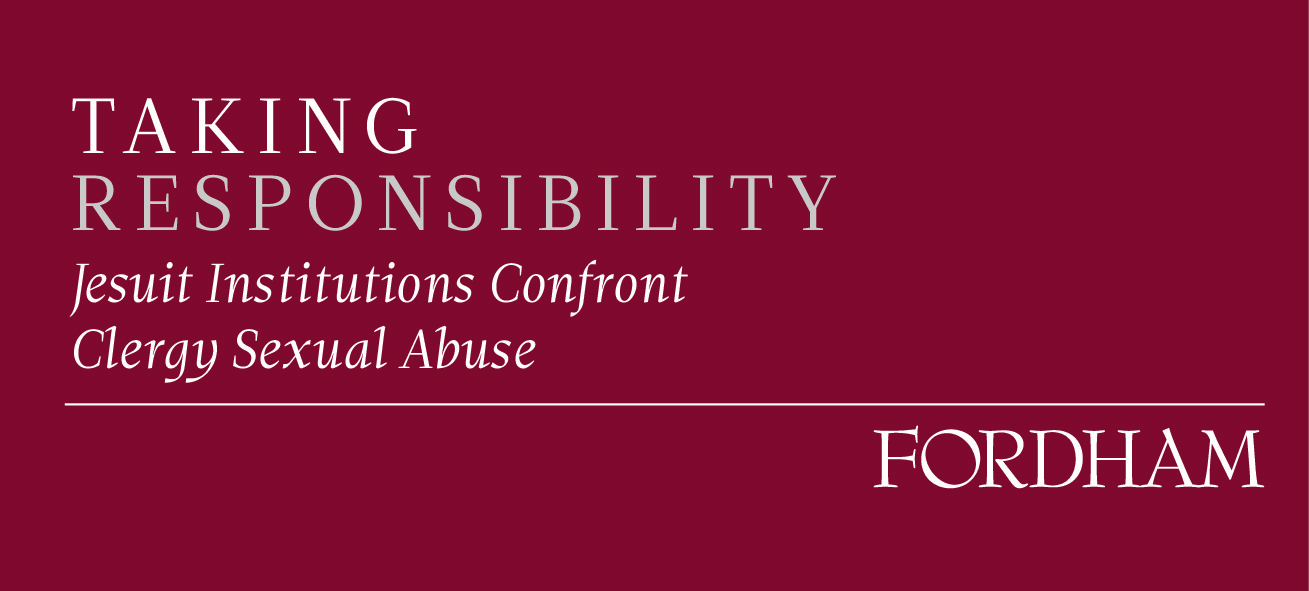Spring ’24 Webinar I
Memorializing Clergy Sexual Abuse
March 18, 2024
In this webinar, three scholars explore questions about whether, when, and how communities can contend–together, as communities–with the history and memory of the abuse crisis. With expertise in trauma studies, liturgy, theology, and history, our panelists ask about the ethics, means, and meanings of various efforts to remember clergy sexual abuse, as well as those who suffered and defied it.
Panelists

Stephanie Arel is currently an Instructor at Fordham University. Her research focuses on the pastoral theological practices around trauma, shame, and empathy. Her most recent projects address the practices of commemoration in memorial museums and how those who mediate human memory and suffering offer a model for what it means to care for the other. Her book Bearing Witness: The Wounds of Mass Trauma at Memorial Museums (Fortress 2023) is an ethnographic exploration of workers at memorial museums around the globe considering their possible interpretation as public, pastoral theologians. Arel is also author of Affect Theory, Shame and Christian Formation (Palgrave Macmillan 2016) and co-editor of Post-Traumatic Public Theology (Palgrave Macmillan 2016), Ideology and Utopia in the Twenty-First Century: The Surplus of Meaning in Ricoeur’s Dialectical Concept (Lexington 2018) and Probing Human Dignity: Exploring Thresholds from an Interdisciplinary Perspectives (Springer 2024). She holds a certificate in treatment for trauma in the clinical setting from the New York Institute in Psychoanalysis and has been teaching in trauma and theology for 12 years.

Alana Harris is a Reader in Modern British Social, Cultural, and Gender History at King’s College London. She has authored eight books, including the pathbreaking Faith in the Family: A Lived Religious History of English Catholicism, 1945-1982 (MUP, 2013) and her most recent publication as editor of The Oxford History of British and Irish Catholicism, 1914-2021 (OUP, 2023). Her research specialisms encompass histories of gender and sexuality; devotional cultures and material religion. She is currently undertaking research on CSA in religious settings with a focus on the ‘LOUDfence movement’ in Britain and Australia which seeks to give visibility and voice, through memorialisation, to those affected by abuse.

Layla Karst is an assistant professor in the Department of Theological Studies at Loyola Marymount University where she teaches and writes at the intersection of liturgy and ecclesiology. Her recent scholarship has explored the ways that racism, sexism, and sexual abuse have impacted our liturgical celebrations and the function of lament in addressing these liturgical challenges. She is currently studying the theology and practice of lay preaching in Catholic communities and their implications for building a more synodal church. Dr. Karst is a member of the Catholic Theological Society of America, the North American Academy of Liturgy, and the Catholic Academy of Liturgy and she serves on the Archbishop’s Liturgical Commission in the archdiocese of Los Angeles. Her publications include articles in the journals Horizons, Liturgy and Practical Matters. She holds a PhD from Emory University and an MDiv from the University of Notre Dame.
